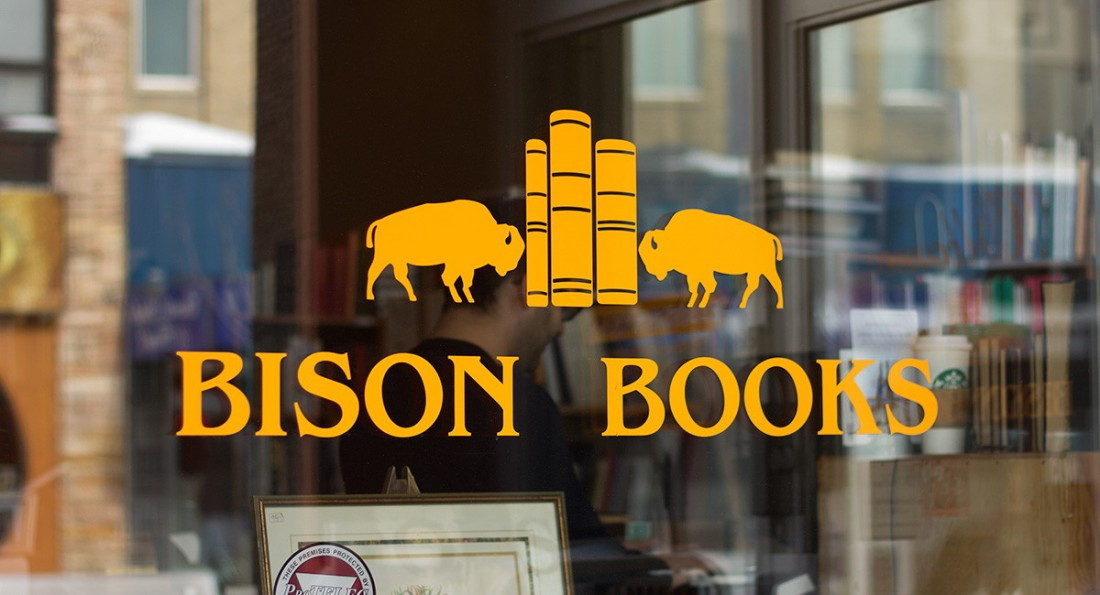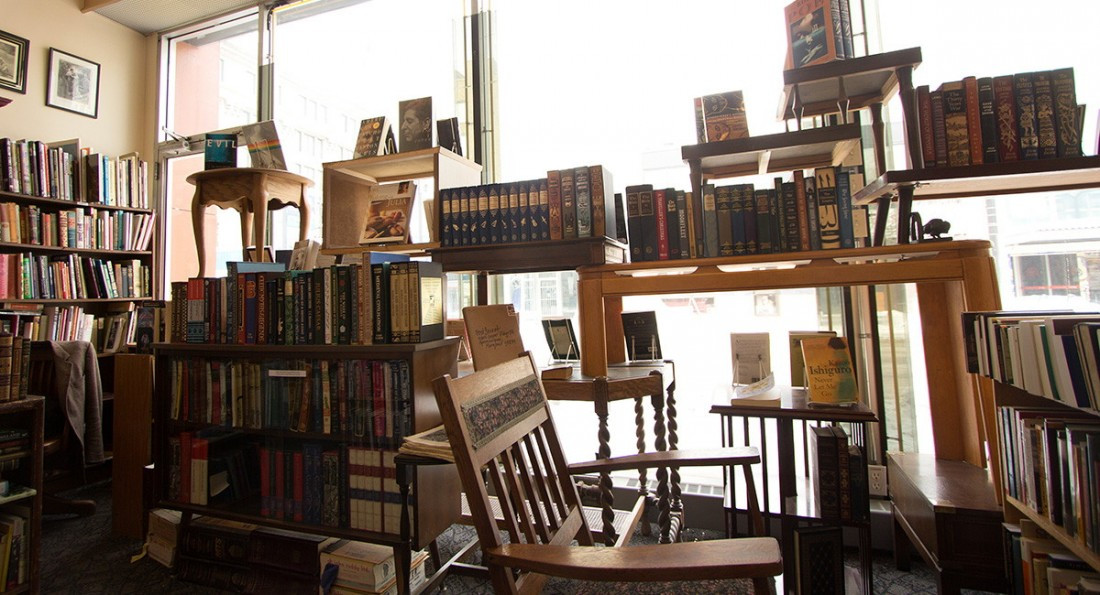Going the way of the buffalo?
Loss of bookstores a concern that reading on the decline
This week there’s been a lot of excitement over CBC’s annual event called Canada Reads. But what about next week, and the week after that?
In reality, the once-popular act of reading books seems to be in decline, as evidenced by the closing of several independent bookstores in downtown Winnipeg over the last six months. The loss of such new and used booksellers as Aqua Books, Mondragon, Highbrow Books and Hull’s Bookstore suggests fewer people are purchasing books.
“Partly, people just aren’t reading as much, and those who are reading are sometimes reading on their devices, so the physical book is just not selling as much as it used to,” says Aimee Peake, owner of Bison Books.
“I think reports throughout the trade – new and used – say that it’s about a 25% decline in the last few years, and I think that’s almost directly attributable to e-Readers of one sort or another.”
In the case of downtown Winnipeg’s loss of bookstores there were various reasons to blame, but as Peake points out, those other problems wouldn’t be so significant if sales were doing well.
“I think in each of those situations there were other factors,” she explains. “But I think if business was gangbusters, they wouldn’t have closed despite the other problems.”
Barry Gibson, who opened ZED Books just over seven years ago, is also wrestling with the question of why there’s been a decline in sales.
“I think there’s now a cultural bias shifting away from [the] printed word,” he describes. “I mean of course people still read things online and people read magazines, but the printed word – as far as owning books – there seems to be a tip against that.”
It doesn’t seem to be solely a change in medium from books to e-Readers, but perhaps a decline in the value society places on the act of reading itself.
“I think young people growing up are growing up not necessarily in a culture where books are really important, which is a little bit sad,” Gibson says. “It’s not a good sign, but I’m kind of determined to stick it out. I don’t know how long [ZED Books] is going to last.”
For Peake, the challenge becomes one of staying relevant in our digital era, especially if we hope to have bookstores contributing to a vibrant downtown as opposed to empty store fronts.
“You can’t just sit back, you have to maintain the freshness of your stock – online as well as in the store,” she says. “I think that’s one of the main things that keeps people coming back here… we have new books out every day.”
According to Peake, Bison Books’ new location has also helped it in terms of its visibility to those walking around downtown.
“It’s funny, when we moved in here people would come in and say ‘Oh it’s so nice to have a bookstore in the neighborhood’, I was like ‘<i>We’ve been a block away from here for seven years, what do you mean?</i>’”
For a downtown in flux, enjoying continued access to independent bookstores requires customer support.
“I think that a lot of people don’t really think about that,” Peake says. “If they don’t come in here and spend their money here... It’s going to be an empty space. And then they’re going to complain about the downtown being full of empty spaces. It’s a very direct link.”
Published in Volume 68, Number 22 of The Uniter (March 5, 2014)








